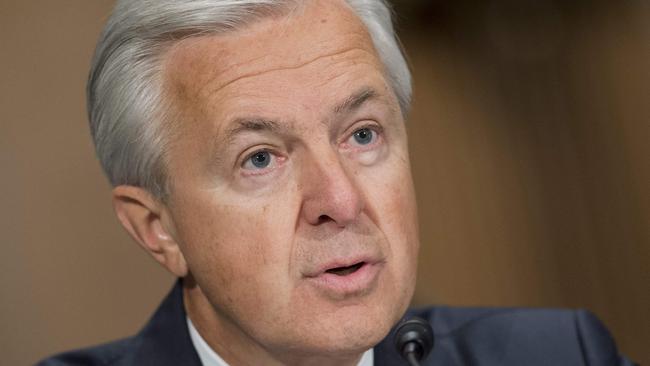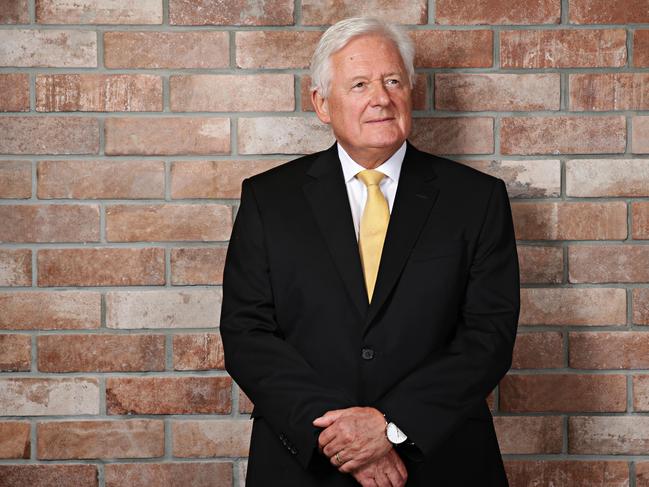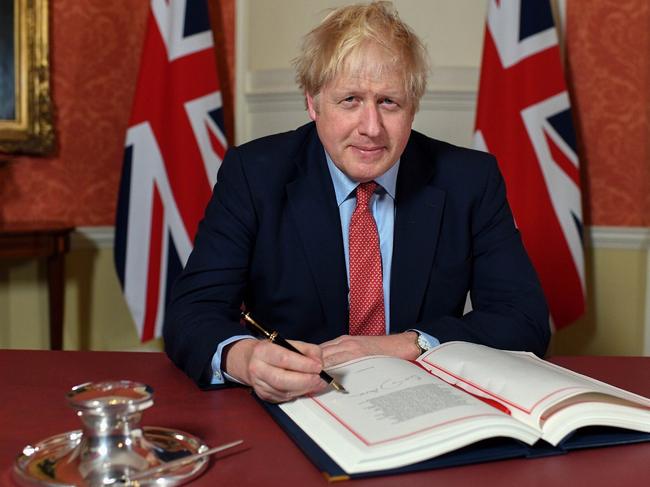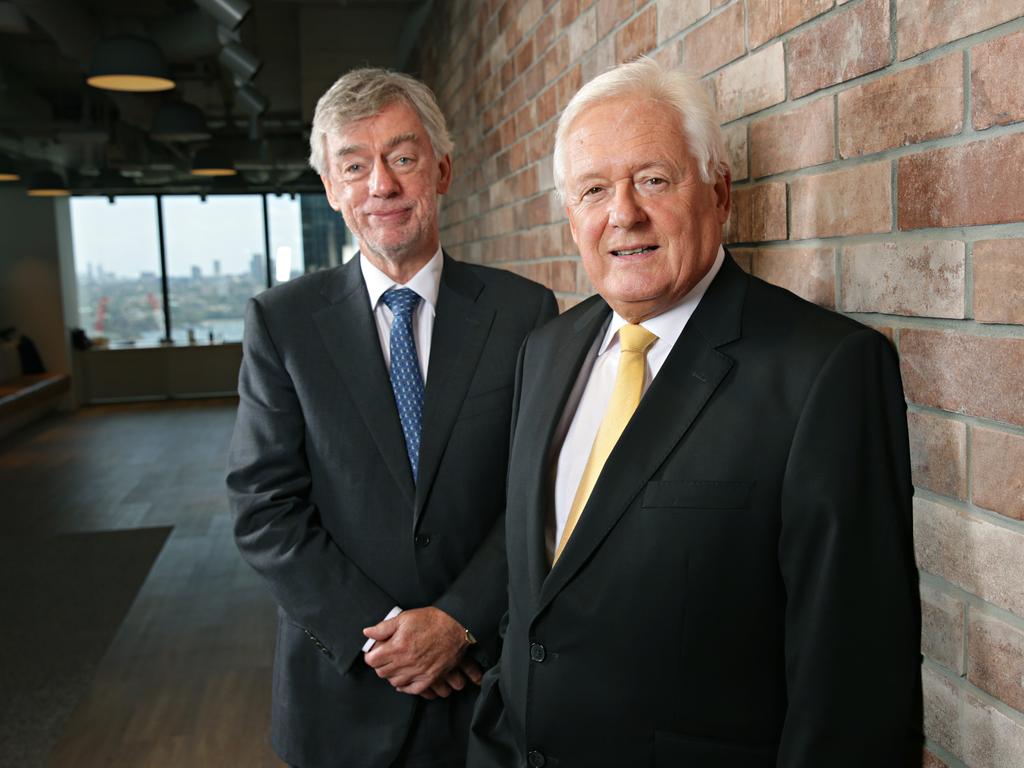
As incoming Westpac chair John McFarlane sets his mind towards selecting a new chief executive, the life ban imposed on former Wells Fargo boss John Stumpf puts the issue of bank executive accountability in an entirely new context.
The US has long led the way in imposing tens of billions of dollars in fines on the big banks in the wake of the global financial crisis and home loan scams.
The 66-year-old Stumpf will be able to pay the rent after collecting $US80m ($117m) worth of stock and $US60m in salary and bonuses in his time at the bank, along with a $US22.7m pension.
He has already had fines and salary clawbacks reduce his net worth by $US70m. But the life ban imposed by the US Comptroller of Currency is by an order of magnitude the biggest hit against a big bank chief in recent years.
Democrat presidential candidate Elizabeth Warren welcomed the move but reportedly said he should be criminally investigated and, if the facts supported it, jailed.
In 2016, it was revealed the bank had opened potentially millions of personal accounts without the people knowing about it.
In Australia the royal commission showed our big financial houses effectively stole money from clients by charging for work they didn’t do.
Warren said: “Stumpf oversaw a scam that hurt hundreds of thousands of people and cost workers their jobs.”
At the time, Wells Fargo was the poster child of the US banking industry. It was one of the few to emerge virtually unscathed from the global financial crisis, and was seen as a model for the industry.
The penalty comes as the Australian banks are undergoing their own changes in the wake of recent financial scandals, some of which were aired during the recent royal commission.

Three of the big four Australian banks have changed both chair and chief executive in the past few years in the wake of cultural shortfalls which allowed systematic violations of laws and regulations.
While bank bosses in Australia and the US have dropped some money and some have lost their jobs, so far none has faced a personal hit as big as Stumpf.
The US Comptroller of Currency said in a statement that Stumpf “was or should have been aware of the problem”.
The present Wells Fargo boss, Charlie Scharf, said in a statement to staff: “Our customers and you all deserved more from the leadership of this company.”
Westpac chair Lindsay Maxsted will hand over the reins to McFarlane next month in the wake of a litany of governance snafus that also cost chief executive Brian Hartzer his job, joining former CBA boss Ian Narev and NAB’s Andrew Thorburn as chief executive departures.
Narev has since re-emerged as the effective heir apparent to Andrew Bassat at Seek.
McFarlane will look for both internal and external candidates, with former CFO Peter King the internal favourite.
Being in effect shown the door is one thing, but copping a lifetime ban from working in the financial services industry is another — and the as-yet unseen criminal charges is another.
The US action shows the regulatory backlash against the banking industry still has plenty of time to run.
BoJo boost for Huawei
UK press reports say Prime Minister Boris Johnson will defy US requests by allowing Chinese telecommunications equipment supplier Huawei into its 5G rollout, with as yet unspecified market share limits.
Reports say market share caps will be imposed, with the final decision due on Tuesday.
The UK move is aimed at cutting costs by providing competition to existing operators Ericsson and Nokia, but it runs counter to US moves to block the supplier on security grounds.

It is also a boost to Huawei’s last-ditch push to gain access to the Australian market, after being banned here in 2018. The Chinese company assumes that if the door is not opened this year, it will be too late as the 5G rollout will be well under way.
Telstra, a world leader in 5G, uses Ericsson, while Optus uses Nokia and Ericsson, and Vodafone has signed up with Nokia.
Most in the industry doubt whether the government will change its mind after former PM Malcolm Turnbull accepted Home Affairs Minister Peter Dutton’s advice back in 2018. The decision helped prompt TPG’s decision to withdraw from its mobile rollout and instead merge with loss-making Vodafone.
The ACCC blocked the merger on the grounds that TPG had the ability to resurrect its plans and argued there were myriad alternatives to Huawei.
5G requires more transmission equipment than existing technology, which is why Huawei wants to play in the transmission market rather than the so-called core network. Over time, the lines will be blurred as software will be deployed throughout the network.
Huawei has argued concerns about China are not valid, noting Ericsson and Nokia use it as a base for some equipment manufacture.
Hardware’s hard yards
Bunnings’ acquisition of Adelaide Tools reportedly cost about $30m but it has taken the ACCC since November 5 to work out whether it breaches competition rules.
A decision was delayed from this week until February, 7 reportedly because of delays in getting the right information over the holiday period.
But the delays also indicate there could be some lingering concerns about the deal.
The reality for Mike Schneider’s team at the $13bn Bunnings behemoth is that every time he scratches his armpit the ACCC is interested, because while Bunnings claims to have just 16 per cent of the home improvement market, the company’s share of the do-it-yourself market is closer to 50 per cent.
Adelaide Tools, which has five stores in Adelaide and a mower centre, was established by Marissa and Rob Peach.
Honour well earned
Goldman Sachs veteran and Seek chair Graham Goldsmith was awarded an Order of Australia this week for his work in philanthropy and business.
The former Swinburne University chancellor also sits on the board of listed investment company Djerriwarrh and the board of Carol and Alan Schwartz’s Trawalla Foundation.
Goldsmith’s philanthropic work includes his involvement with Gandel Philanthropy and the Stars Foundation, which raises money to help indigenous girls in high school.
The foundation’s board includes former Woolworths boss Grant O’Brien, former ALP minister Martin Ferguson, Dr Mark Wenitong, Donisha Duff, Andrew Goddard and Olga Haunen.
Its aim is to help indigenous girls complete school and give them mentoring on life choices.
Goldsmith is also on the panel of Adara Partners, which does corporate advisory work where the fees are donated to charity and includes director Ilana Atlas, former UBS bankers Guy Fowler and Matthew Grounds, Goldman Sachs’ Christian Johnson, Citi banker Tony Osmond and ANZ chair David Gonski.






